In an era defined by rapid technological advancement and existential uncertainty, humanity continues to grapple with timeless questions about love, loss, and the meaning of existence. Enter Erothtos, a term gaining traction in philosophy, psychology, and the arts to encapsulate the intricate dance between life’s most potent forces: Eros (love, desire) and Thanatos (death, decay). Far from a mere intellectual curiosity, Erothtos offers a framework for understanding how these dualities shape our relationships, creativity, and collective future. This article unpacks the origins, implications, and transformative potential of Erothtos, revealing why it resonates so deeply in our modern world.
Table of Contents
The Origins of Erothtos: From Myth to Modernity
Eros and Thanatos in Ancient Greek Thought
The concept of Erothtos finds its roots in ancient Greece, where Eros and Thanatos were worshipped as deities governing opposing yet interdependent realms.
- Eros: The god of love and fertility, Eros symbolized the life force driving human connection, artistic creation, and procreation. In Hesiod’s Theogony, Eros is a primordial deity, older than the Olympian gods, representing the cosmic urge toward unity.
- Thanatos: Often depicted as a winged, gentle figure, Thanatos personified peaceful death. Unlike the violent demise brought by his sister Keres, Thanatos signified acceptance of mortality as a natural transition.
Philosophers like Plato explored Eros as a transcendent force in The Symposium, where love becomes a ladder to divine truth. Meanwhile, tragedians like Sophocles wove Thanatos into narratives of fate and hubris, as seen in Oedipus Rex. The Greeks understood these forces not as enemies but as partners in the human experience, a theme Erothtos revives.
Freud, Jung, and the Birth of Psychological Dualism
The 20th century reimagined Eros and Thanatos through psychology. Sigmund Freud, in Beyond the Pleasure Principle (1920), framed them as life and death instincts:
- Eros (Libido): Drives toward survival, reproduction, and social bonds.
- Thanatos (Death Drive): Manifests as self-destructive behaviors or a subconscious yearning for stillness.
Freud’s disciple Carl Jung expanded this duality, linking Thanatos to the shadow archetype, the repressed aspects of the psyche. Jungian therapy encourages integrating these shadows, a process mirroring Erothtos call to embrace both creation and dissolution.
Cross Cultural Parallels
Erothtos echoes globally:
- Hinduism: The union of Shiva (destroyer) and Shakti (creator) in Tantric philosophy.
- Japanese Aesthetics: Mono not aware, the bittersweet appreciation of impermanence, captures the Erothtos ethos in cherry blossoms fleeting bloom.
- Existentialism: Thinkers like Albert Camus argued that acknowledging death (The Myth of Sisyphus) fuels authentic living.
These parallels reveal Erothtos not as a novel idea but a universal truth repackaged for contemporary discourse.
The Multidimensional Meaning of Erothtos
Beyond Binary Thinking
Erothtos rejects the Western dichotomy of love vs. death, proposing instead a cyclical relationship:
- Creation Through Destruction: Forests require wildfires to regenerate; relationships often deepen after conflict.
- Desire and Mortality: The intensity of romantic love is heightened by its fragility. As poet Rainer Maria Rilke wrote, “The deepest joy has a kiss of death.”
Psychological Resonance
Modern psychology validates Erothtos’ relevance:
- Attachment Theory: Fear of abandonment (Thanatos) underpins anxious attachment styles, while secure love (Eros) fosters resilience.
- Post Traumatic Growth: Studies show that confronting mortality (e.g., near-death experiences) can amplify gratitude and empathy.
Therapist Dr. Esther Perel notes, “Love is not a safeguard against loss, it’s an invitation to dance with it.”
Existential and Spiritual Dimensions
It aligns with existential therapy, which posits that embracing life’s transience fosters purpose. Spiritual traditions, too, honor this balance:
- Christianity: The crucifixion and resurrection narrative embodies death’s role in renewal.
- Buddhism: Non attachment (a form of Thanatos) leads to enlightenment, yet compassion (Eros) is central to practice.
Erothtos in Contemporary Culture
Art and Literature
Erothtos thrives in creative works:
- Film: Portrait of a Lady on Fire (2019) juxtaposes erotic passion with the inevitability of separation.
- Literature: Ocean Vuong’s On Earth We’re Briefly Gorgeous explores love amid intergenerational trauma.
- Music: Billie Eilish’s Everything I Wanted merges themes of fame (Eros) and suicidal ideation (Thanatos).
Digital Age Paradoxes
Technology heightens Erothtos’ tension:
- Social Media: Curated personas (Eros) clash with online harassment and cancel culture (Thanatos).
- Digital Legacy: Platforms like Facebook’s “Memorialized Accounts” blend remembrance with data’s immortality.
Environmental Urgency
Climate change embodies Erothtos on a planetary scale:
- Eros: Humanity’s drive to innovate and dominate nature.
- Thanatos: Biodiversity loss and ecological collapse.
Movements like permaculture model Erothtos by valuing decay (compost) as vital to growth.
Criticisms and Ethical Considerations
Romanticizing Toxic Dynamics
Critics warn that Erothtos could normalize harmful patterns:
- Trauma Bonding: Mistaking intense, unstable relationships for “passion.”
- Burnout Culture: Glorifying overwork (Eros) while ignoring mental health (Thanatos).
Philosopher Byung Chul Han critiques society’s “burnout paradox,” where self destruction masquerades as productivity.
Cultural Appropriation Risks
While Erothtos draws from Greek roots, applying it universally risks erasing non western perspectives. For example:
- Indigenous Views: Many Native American traditions see death as a communal transition, not an individual struggle.
- African Philosophies: Ubuntu (“I am because we are”) emphasizes collective Eros over Western individualism.
Embracing Erothtos: Practices for Personal and Collective Growth
Individual Practices
- Contemplative Rituals: Meditate on the Japanese concept of wabi, sabi (beauty in imperfection).
- Creative Journaling: Write a letter to a lost loved one, celebrating their impact.
- Boundary Setting: Balance connection (Eros) with self preservation (Thanatos).
Societal Applications
- Education: Teach emotional literacy alongside STEM, fostering resilience.
- Policy Making: Design cities with green spaces (Eros) and sustainable waste systems (Thanatos).
FAQs
What philosophical idea explores the connection between love and mortality?
It’s rooted in ancient Greek mythology and modern psychology, examining how desire (Eros) and endings (Thanatos) shape human experience, creativity, and resilience.
How does this concept apply to mental health?
It helps frame attachment, grief, and personal growth e.g., understanding fear of loss in relationships or finding meaning in life’s impermanence through therapy.
Are there cultural examples of this duality in art?
Yes, from tragic romances like Romeo and Juliet to films like Eternal Sunshine of the Spotless Mind, stories often merge passion and impermanence to reflect universal truths.
Can focusing on this theme romanticize unhealthy behaviors?
Critics argue it might, but the concept emphasizes balance, honoring both connection and boundaries, creation and release, rather than glorifying suffering.
How can individuals integrate this idea into daily life?
Through mindful reflection (journaling, meditation), creative expression, and rituals that honor transitions, such as celebrating endings as catalysts for new beginnings.
Conclusion
In a world teetering between climate collapse and AI-driven isolation, Erothtos offers a path forward. By honoring both our yearning to connect and our need to let go, we cultivate radical resilience, the ability to thrive amid uncertainty. From personal relationships to global crises, Erothtos reminds us that endings are not failures but portals to rebirth. As the poet Warsan Shire writes, “You can’t make homes out of human beings. Someone should have already told you that.” Perhaps Erothtos is that someone, a whisper from the past, urging us to love fiercely, mourn deeply, and embrace the beautiful, fleeting now.
Never miss an update! Follow our WhatsApp Channel for exclusive News and Blogs.


